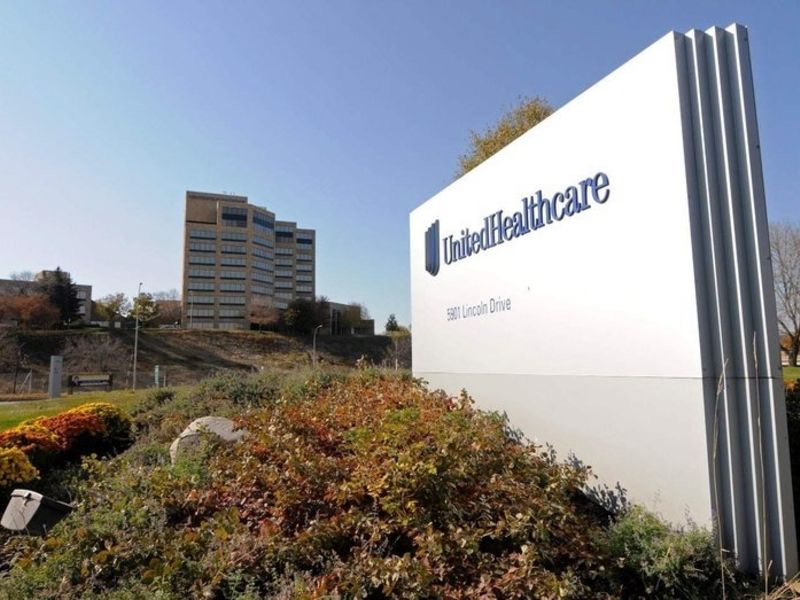
The American Society of Anesthesiologists is calling on the Justice Department to investigate the “high rate” of provider contracts the nation’s largest insurer is canceling early, a practice the lobbying group says leads to higher costs for patients and employers and threatens providers’ financial viability.
UnitedHealth Group’s UnitedHealthcare arm has been removing a growing number of anesthesiologists from its provider networks, the organization wrote in a letter sent to acting Assistant Attorney General Richard Powers on Thursday.
The specialty society, which represents 54,600 anesthesiology providers, has heard from “hundreds and hundreds” of practices of all sizes and type who complain that the insurer is canceling contracts at least six months ahead of time, leaving anesthesiologists out of network and paid a fraction of the rates they once received, American Society of Anesthesiologists President Dr. Beverly Philip said.
“It’s been crescendoing. It’s becoming more common,” Philip said.
UnitedHealth Group negotiates thousands of contracts each year and reaches competitive agreements with the vast majority of them, a spokesperson wrote in an email.
Download Modern Healthcare’s app to stay informed when industry news breaks.
“Unfortunately, a small number of groups, many of which are private equity-backed, are working to protect their ability to continue charging egregiously high rates,” the spokesperson wrote. “The real reason many of them no longer participate in our network is because they expect to be paid double or even triple the median rate we pay other physicians providing the same services. While these egregiously high rates help meet profit expectations, they also drive up the cost of care and make healthcare less affordable for people across the country.”
Patients experience a high number of surprise bills for anesthesiology, partly because they typically do not get to choose the anesthesiologists, research shows. In 2015, 12% of in-network hospitals bills included surprise charges for anesthesiology services, according to a Yale University study published by Health Affairs in 2019. These providers charged more than eight times the Medicare rates for their services, the study found.
Over the past few years, the American Society of Anesthesiologists has fielded similar complaints about insurers kicking its members out of their networks, including Anthem’s Cigna, CVS Health’s Aetna and some Blue Cross and Blue Shield carriers, Philip said. UnitedHealthcare is by far the most common insurer American Society of Anesthesiologist members cite, she said.
“Our members want to be in-network because [American Society of Anesthesiologists] cares that patients get high-quality, affordable care, and that they are not left holding the bag on what is basically an insurer-level dispute,” Philip said.
In addition to operating the nation’s largest insurer, UnitedHealth Group’s Optum subsidiary is reportedly the largest employer of physicians, with more than 56,000 clinicians on payroll, including anesthesiologists. In addition, Optum’s Surgical Care Affiliates division employs anesthesiologists at 250 surgery centers.
Anesthesiologist complaints have increased since President Donald Trump and Congress enacted the No Surprises Act last year, Philip said. The No Surprises Act aims to prevent patients from high out-of-network charges, and requires that out-of-network arbitration between payers and providers will be based on the median in-network rates or previously contracted rates. That gives the insurer an incentive to depress the median price by excluding providers who charge higher fees, she said.
Anesthesiologists are the latest provider group to question actions UnitedHealthcare has taken since the No Surprises Act passed.
In June, UnitedHealthcare announced it planned to retroactively deny some patient visits to emergency departments it deemed a “non-emergency,” although outcry among physicians inspired the insurer to put the policy on hold.
The following month, UnitedHealthcare stopped paying out-of-network claims when fully insured customers sought non-emergency care outside of their local coverage areas. Patients seeking treatment from “step down” facilities away from where they live, including skilled-nursing facilities, residential treatment facilities, inpatient rehabilitation programs and more, are subject to the new rule.
In recent months, the American Hospital Association, American Antitrust Institute and National Community Pharmacists Association have all also accused UnitedHealth Group of anticompetitive behavior, although their accusations are related to the company’s $13 billion proposed acquisition of Change Healthcare, a revenue cycle management and data analytics company. Federal regulators have asked for more information about the acquisition.
Source link : https://www.modernhealthcare.com/insurance/anesthesiologists-accuse-unitedhealth-anticompetitive-network-exclusions











